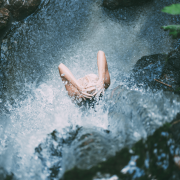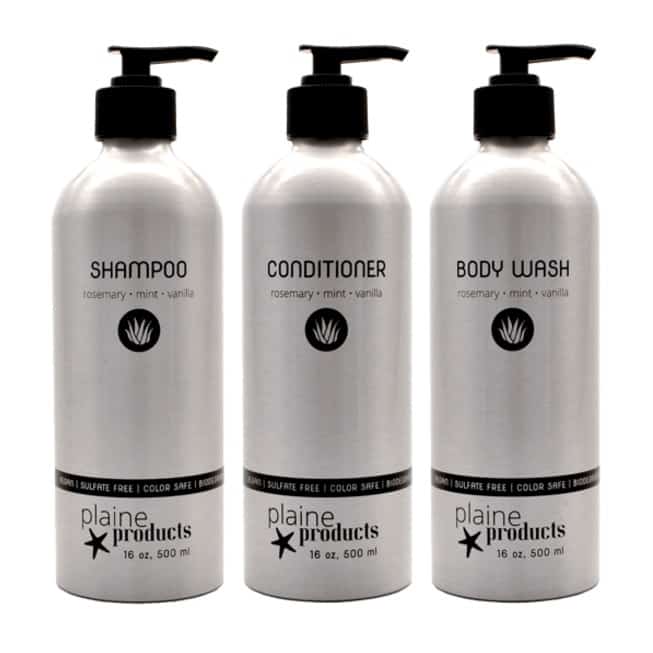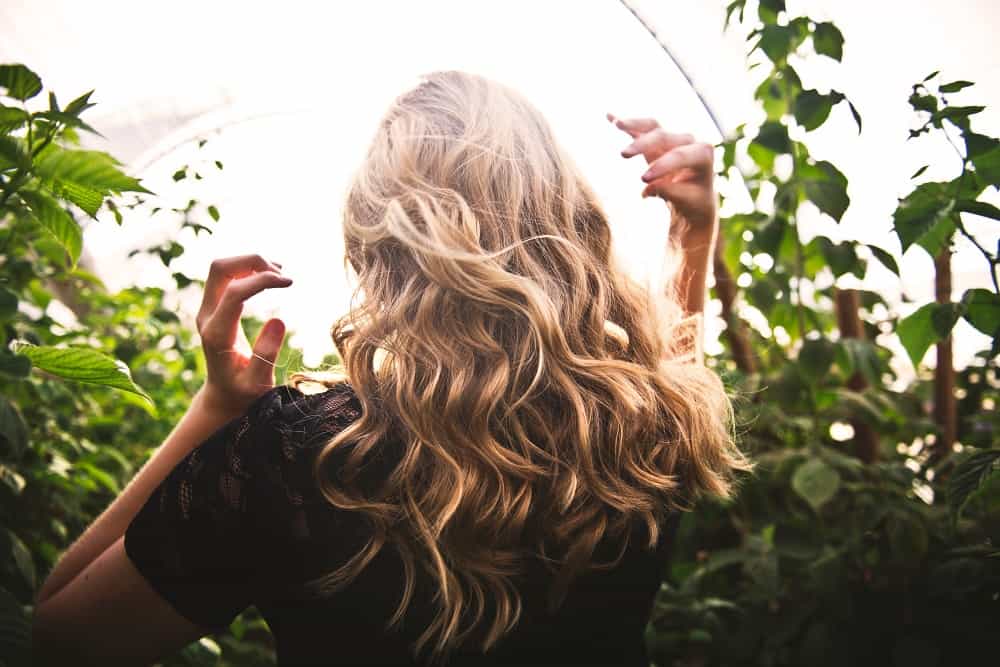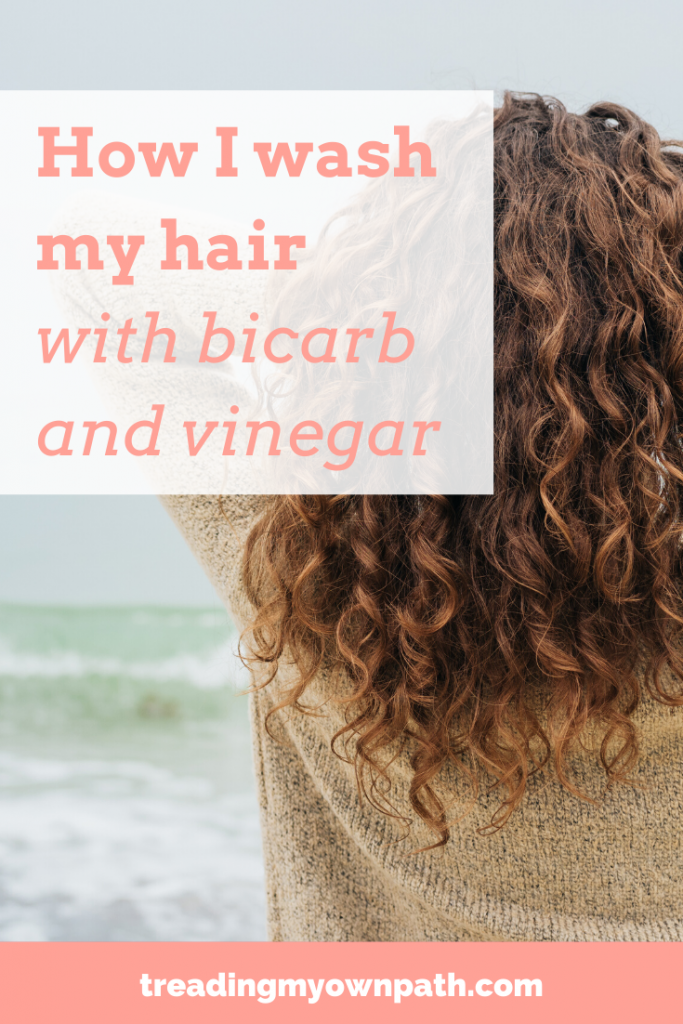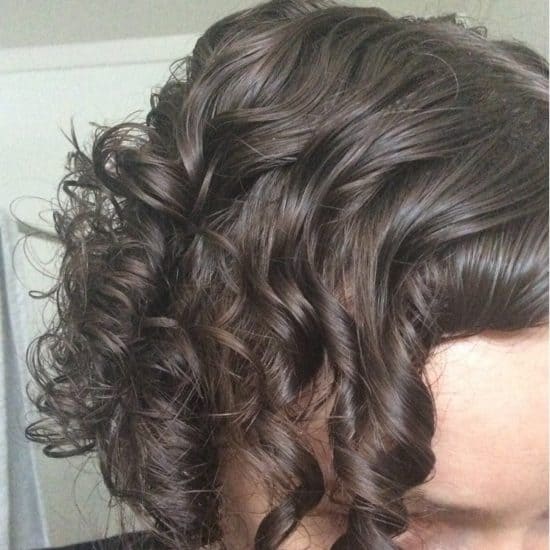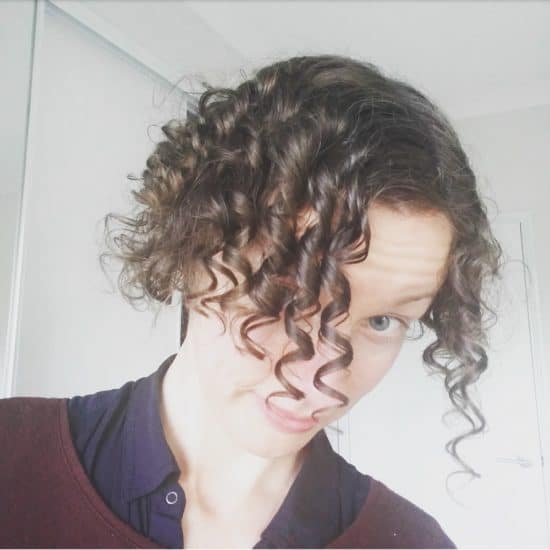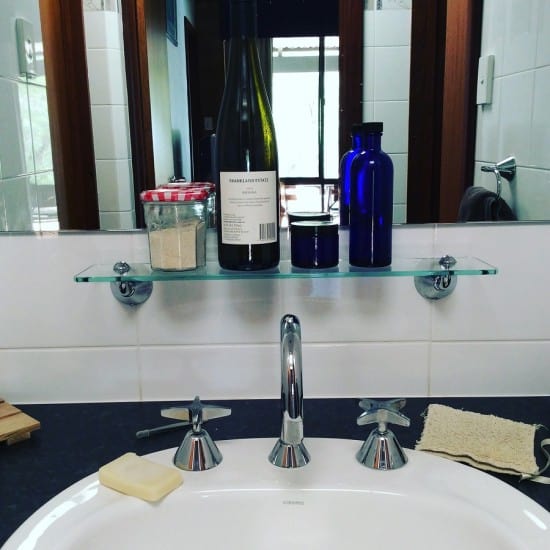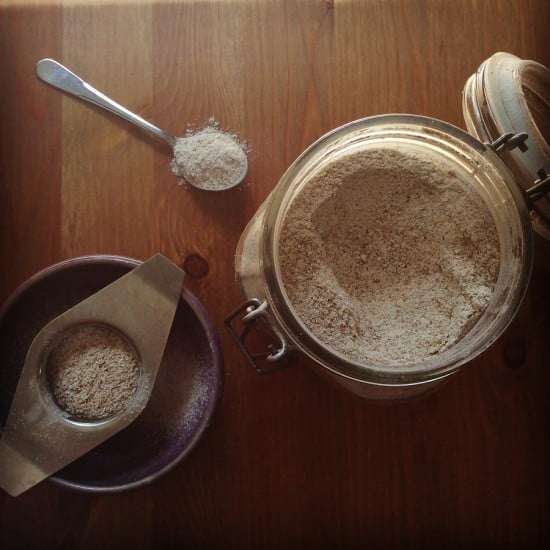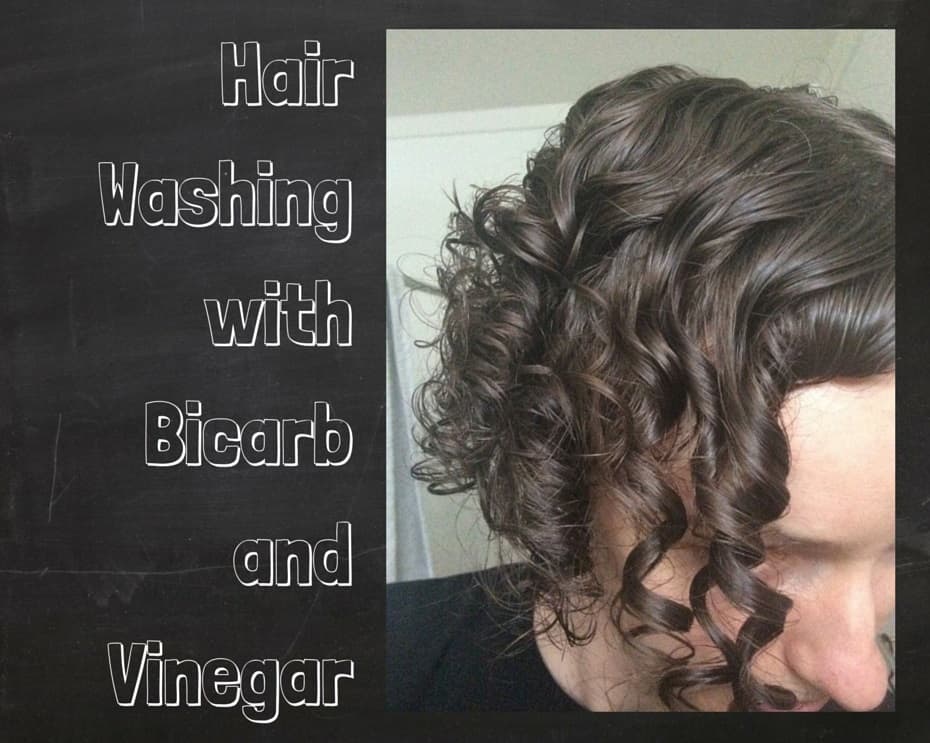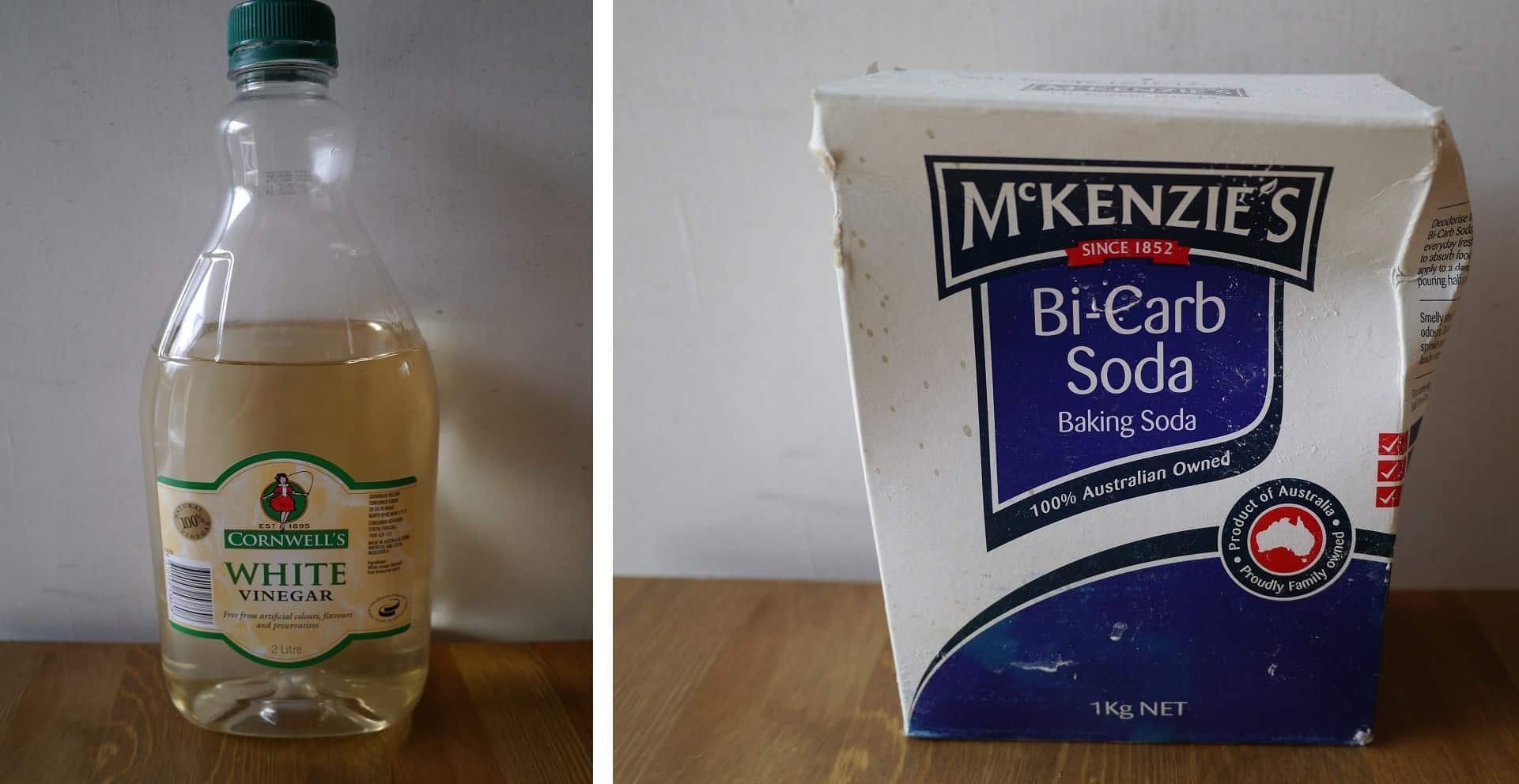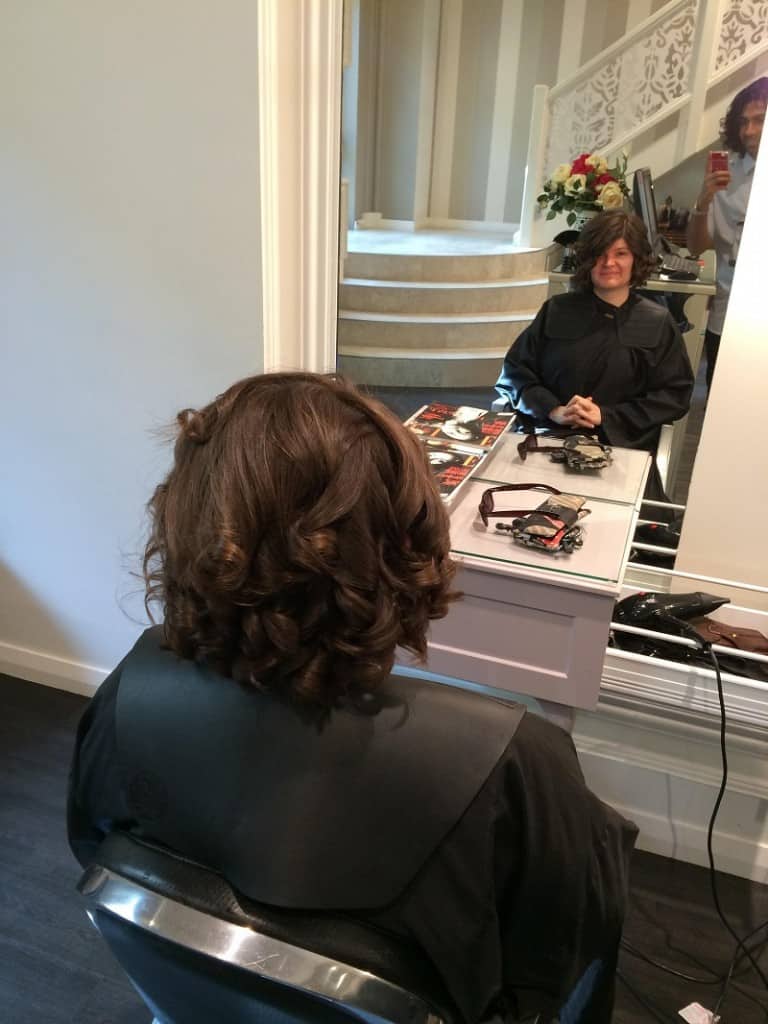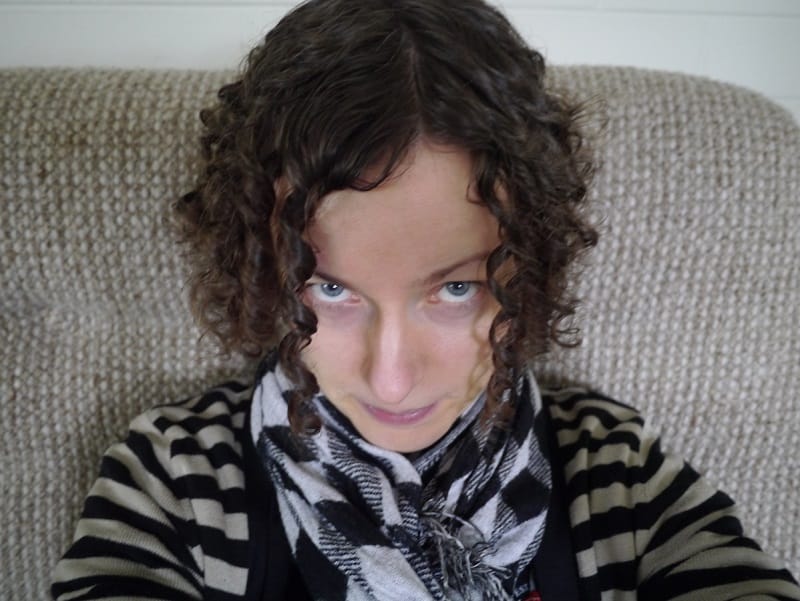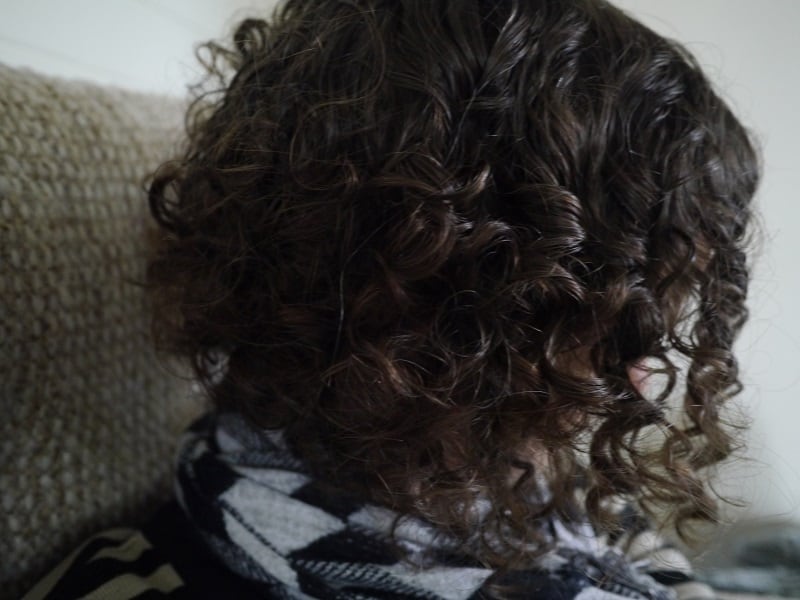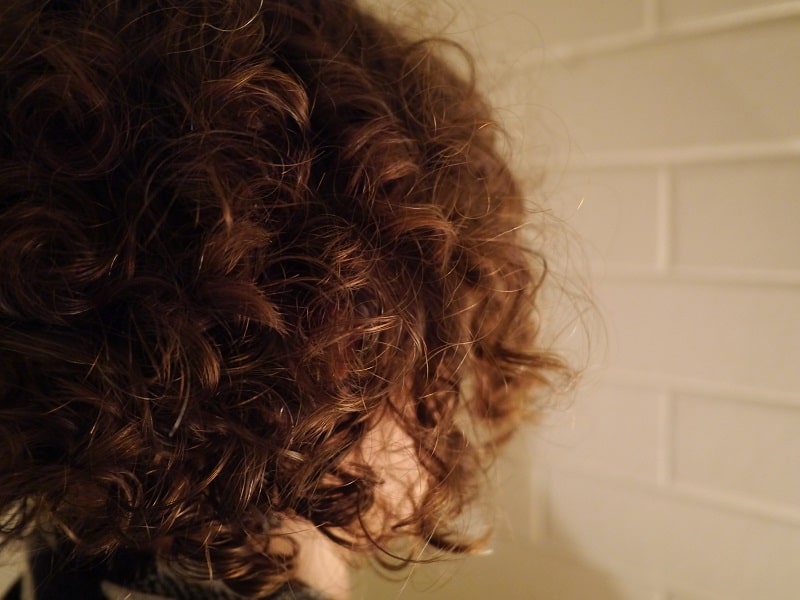6 Plastic-Free Alternatives for Shampoo and Conditioner
Last week I wrote about hair washing with bicarb and vinegar, and I promised all the non-believers that I’d follow up with a post about other alternatives to plastic bottles of shampoo and conditioner.
Here it is: more ideas to wash your hair without plastic.
This post contains some affiliate links. You can read more at the end of the post.
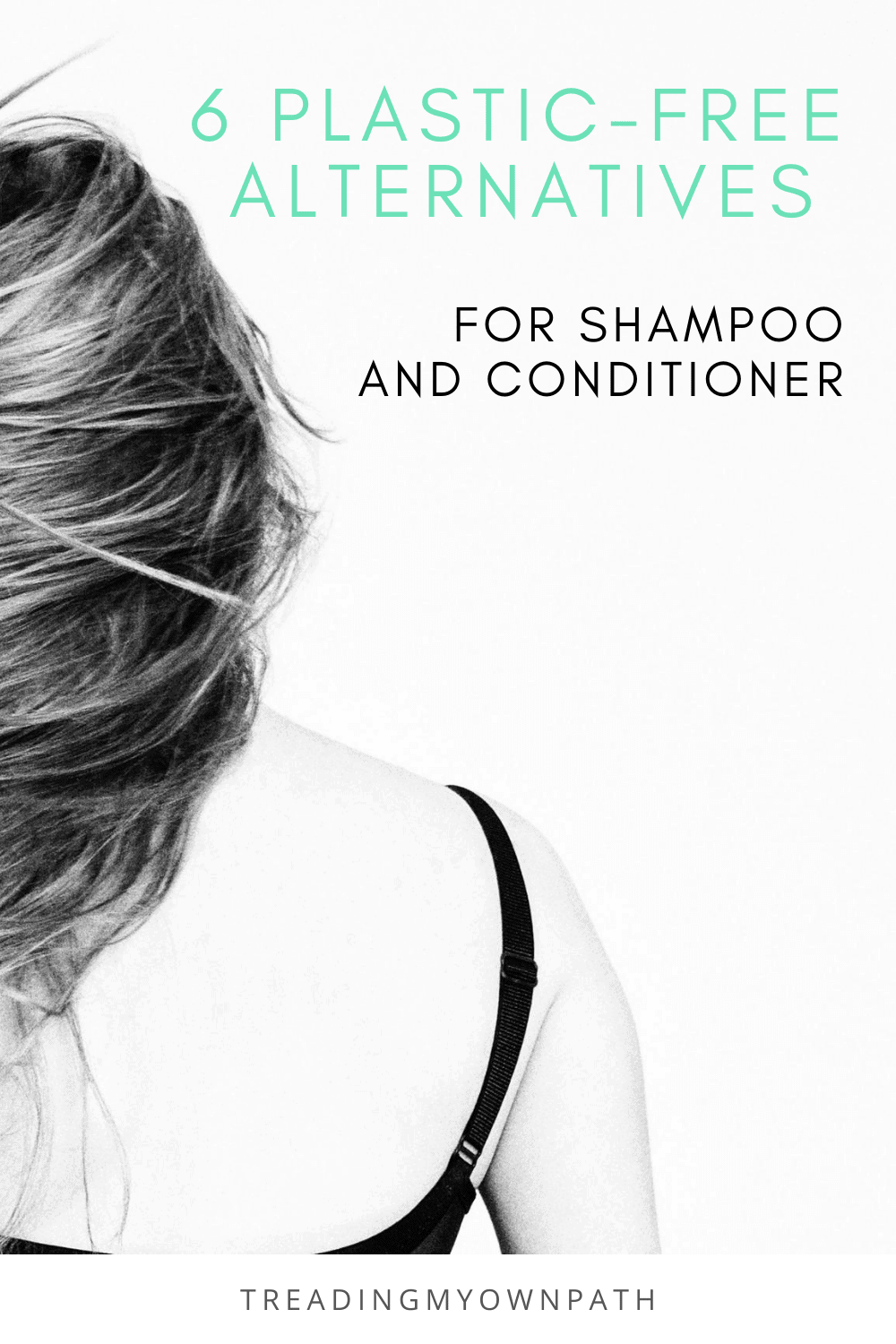
1. Bicarb and vinegar.
I know this might be a bit of a bold one to start with, but I want to say that it’s worth considering! No, it doesn’t work on everybody’s hair, but it’s honestly worth a try. You won’t smell like fish and chips, promise.
I tend to use rye flour rather than bicarb because the pH is closer to the skin’s pH, and it makes my hair softer, but the principle is the same for both. Here’s the instructions.
Moving on…
2. Shampoo and conditioner from bulk stores.
Not all bulk stores have a non-food section, but many do. Bulk stores with a focus on waste reduction (such as my local store The Source Bulk Foods) usually stock these products, and you can buy bulk shampoo, conditioner and other products in your own containers.

Health stores often stock bulk personal care products too, so if you don’t have a bulk store locally, check out any health stores close by.
3. Bar shampoo and conditioner.
Many people who are trying to reduce their plastic use make the switch from liquid shampoo to solid shampoo because of the reduction in packaging. In recent years the number of options have exploded, which means you can find one that will suit your hair type and budget.
If you’re in Australia or New Zealand, Ethique products are definitely the most popular option with my readers. This New Zealand company packages everything plastic-free.
You can order direct from their website, but if you’re looking for deals or offers you’re better off trying Biome, Flora & Fauna or Nourished Life, who all stock a good range and often have deals.
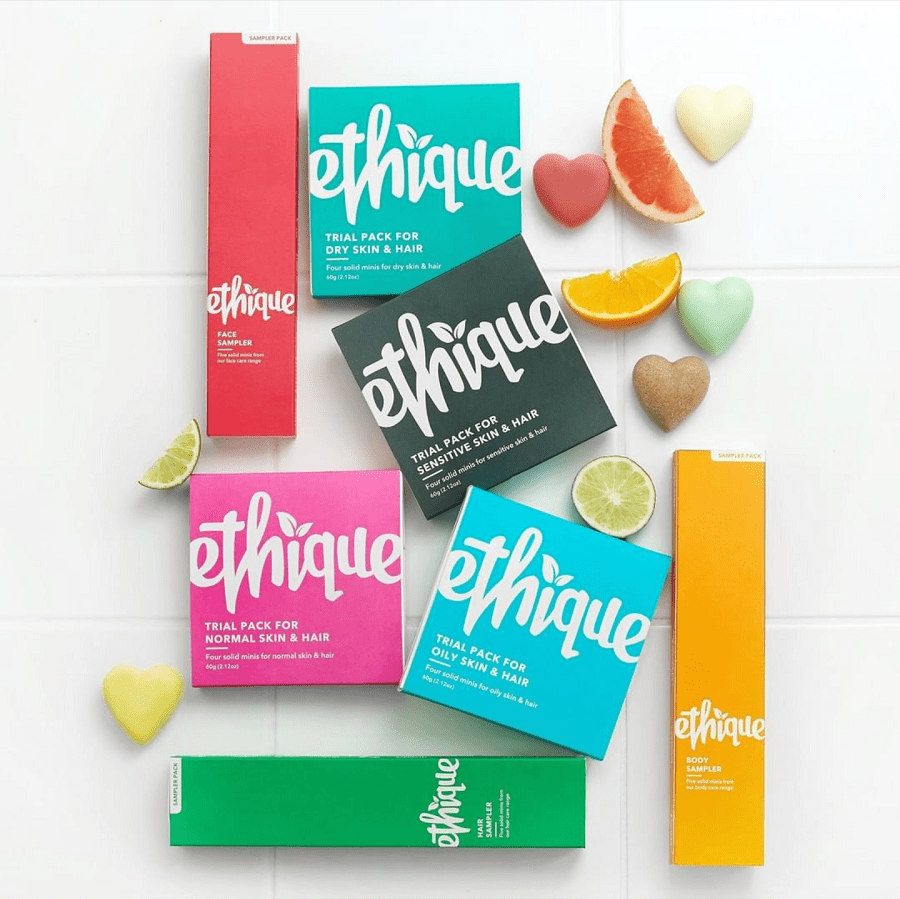
If you’re in the UK, &Keep is a great online store with an excellent range of plastic-free products and they stock a really good selection of solid shampoo and conditioners.
Lush Cosmetics is another option if you prefer to shop on the high street, with stores across the world (including Australia, USA and UK).
There’s also heaps of micro businesses at local markets (I’ve seen several here in Perth) and online via Etsy. Whilst I can’t recommend anything in particular (I wash my hair with bicarb and vinegar, remember?!), I do love supporting local and independent businesses, and it’s great to find someone in your neighbourhood making products.
4. Shampoo and conditioner in refillable bottles.
I don’t recommend purchasing shampoo and conditioner in glass (or other non-plastic containers) as a zero waste option unless they are going to be refilled. Recycling is such an energy intensive process, and there are so many other alternatives, that I truly see it as a last resort.
Rather than recycling the bottles, some companies will allow you to return your bottles for cleaning and refilling. This means you buy a product from them, and can return your empty when purchasing a new one. You don’t actually refill the container yourself, the company takes it away, cleans it, and refills on the production line.
Whilst these companies are not easy to find, they do exist. Plaine Products in the US is an excellent example: they allow customers to return bottles for refill and reuse. I think this is something we will begin to will see more and more of.
(This isn’t to be confused with companies collecting containers back for recycling – such as Lush’s black pot recycling scheme. Recycling takes far more energy than simply washing and reusing.)
If you buy from someone who makes their own, ask if they can refill your containers. Before switching to bicarb and vinegar I purchased shampoo from a small business called Earth Products in refillable, returnable bottles that I provided. The owner didn’t sell refills as such, but was happy to refill my bottles when she made a new batch. I simply had to drop my bottles off in advance.
5. Soap Nuts
Soap nuts are often touted as a a laundry detergent alternative, but recently I met a lady on a course I was running who washed her hair with soap nuts. Soap nut shampoo? I was intrigued.
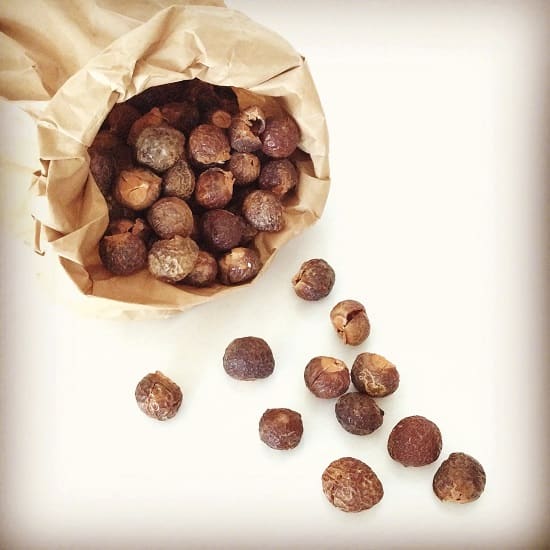
Soap nuts are dried brown wooden berries, slightly sticky, that have a saponin content. I’m always keen to try new things, so I gave them a go. I followed Monique’s instructions:
Place 9-10 soap nuts in a jug and pour over 500ml of boiling water. Allow to sit overnight. Remove the soapnuts from the liquid (they can be reused several times) and store the liquid in the fridge until ready to use.
I filled 1/4 measuring cup with the liquid and used in place of shampoo. It doesn’t foam like shampoo. I finished with vinegar rinse like usual. My hair felt soft and clean. I’m at day 3 now, and my hair could do with another wash, so it doesn’t last as long as bicarb vinegar, but definitely works better than plain water (for me).
6. Shampoo and conditioner in glass.
As I mentioned above, from a zero waste perspective I recommend the other alternatives over choosing glass unless it’s going to be refilled. Of all the options, it’s the more wasteful one. There’s a huge carbon footprint associated with transporting glass, not to mention that shampoo is 70-80% water. Then the glass has to be collected and recycled.
However, we’re not talking about zero waste, we are talking about plastic-free. I definitely purchased non-refillable products in glass at the beginning of my plastic-free journey, and sometimes these choices are important stepping stones to better ones down the track. If you’re not ready for bicarb or bar shampoo and don’t have access to bulk stores, this might be a good step.
If you do decide to look for products packaged in glass, try to find products made locally first. They will have a lower footprint. Try crafts markets and farmers markets, or investigate health stores to see if they stock locally made products.
Now I’d love to hear from you! Do you have an eco friendly solution for washing your hair? Any other method you’d recommend? Any experiences with any of these that you’d like to share? Please tell us your thoughts in the comments below.
[leadpages_leadbox leadbox_id=1429a0746639c5] [/leadpages_leadbox]
(Disclaimer – this post contains affiliate links, meaning if you click a link and choose to make a purchase, I may be compensated a small amount at no extra cost to you. I only recommend products and businesses whose commitment to creating zero waste and plastic-free solutions I believe in wholeheartedly.)

